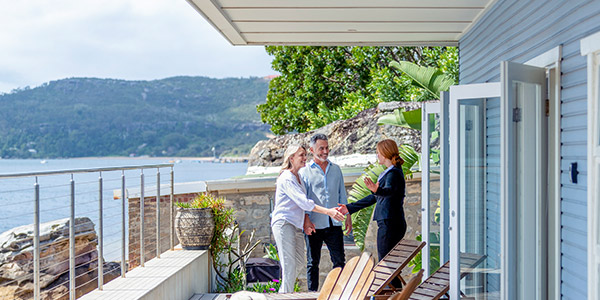Homebuyers
Things to Know Before Buying a Vacation Home, Part 2
August 3, 2016
There is so much to look forward to when investing in a vacation home, but there are also a lot of things you should understand before deciding to make that purchase. Not only are there several regular costs in addition to the mortgage payments, but you also need to take taxes into account (which can differ on a second home).
Beyond that, you need to think about the proximity of your current home to your potential vacation home and assess how often you are likely to use it. If you plan to rent out the property, you also need to consider the popularity of the area for tourists.
These four factors are crucial to keep in mind, yet there is still even more to think about before signing your name on the dotted line:
1. Local Laws and Standards
Tom Kelly, the co-author of "How a Second Home Can Be Your Best Investment," told HGTV that those considering purchasing a vacation home need to perform some extensive due diligence before choosing which one to buy. Your vacation home should be there for your enjoyment, but it also needs to be a good investment. Before signing any agreements, research local construction standards, development plans, zoning laws, and anything else that could influence your ability to increase the value of your home over time.1
2. Additional Work
A vacation home is not like a hotel. You will not always be able to arrive and begin immediately relaxing, as it will be your responsibility to take care of maintenance and restock the home with the necessary supplies. Of course, you might have hired a property manager to deal with a lot of this while you are away, but just remember that every amenity will not be taken care of in advance.
3. Your Future Interests
Before investing in a vacation home, think about whether the property will be able to accommodate your family's needs and interests in the future, and not only right now. Do you think you will grow bored of the location? Is there enough to do there to entertain you if your interests change? Is the property large enough to accommodate more people as your family grows? Will it be easy to use as you age, or are there a lot of stairs and other hazards that are okay now but might limit you when you get older? A vacation home is a long-term commitment, so make sure it will keep you satisfied for a long time.
4. Mortgage Requirements
Those who invest in a vacation home and need a mortgage to finance it are typically taking on debt in addition to the mortgage they are paying on their primary residence. Because you already will likely have a large portion of debt when you apply for a vacation home mortgage, lenders may have stricter requirements regarding your credit score and the down payment.2
At New American Funding, our expert Loan Officers can help you find the best possible loan on a vacation home based on your current financial situation. In addition, we can help you understand the proper due diligence to perform on a vacation home to determine whether it is a good investment. We are here to help you make the right decision. Let us simplify the sometimes confusing process of obtaining an investment property loan and be your guide every step of the way.




